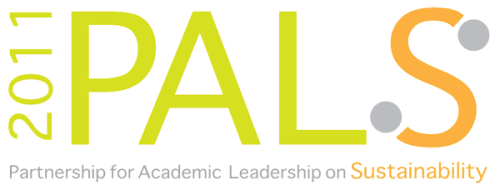University of Maine Recognized for Climate Leadership
The University of Maine receivesSecond Nature’s 2nd Annual Climate Leadership Award for Climate Leadership. Award recipients were recognized at the 5th Annual American College & University Presidents’ Climate Commitment (ACUPCC) Summit in Washington, DC on June 23rd, hosted by George Washington University.
President Robert Kennedy, Vice President for Administration and Finance Janet Waldron, and Executive Director of Facilities and Planning Elaine Clark – along with faculty, staff, and students – are all active participants in the University of Maine Sustainability Alliance, which has been responsible for the development of the university’s climate action plan. The office of the Vice President for Administration and Finance also coordinated the creation of the award-winning and sustainability-focused campus master plan. UMaine’s senior administration is currently working to harmonize the implementation of these two plans and to create an overarching sustainability plan to guide university decision-making and development.
- Read more about University of Maine Recognized for Climate Leadership














 “The difficulty lies, not in the new ideas,” John Maynard Keynes has observed, “but in escaping from the old ones.” Nowhere is the truth of this observation clearer than in our continued adherence to an economy based on fossil fuels. As more than one study has determined, we have the means at our disposal to move into a clean energy world in which the power of the wind, sun, water, tides, and other renewable sources is tapped and runaway climate change is averted. The latest of these studies comes from the United Nations’ Intergovernmental Panel on Climate Change, which earlier this month released a report surveying the already existing technologies that, in combination, could make this happen. The critical missing components are the necessary policies that would drive change in this direction and the political will to implement them.
“The difficulty lies, not in the new ideas,” John Maynard Keynes has observed, “but in escaping from the old ones.” Nowhere is the truth of this observation clearer than in our continued adherence to an economy based on fossil fuels. As more than one study has determined, we have the means at our disposal to move into a clean energy world in which the power of the wind, sun, water, tides, and other renewable sources is tapped and runaway climate change is averted. The latest of these studies comes from the United Nations’ Intergovernmental Panel on Climate Change, which earlier this month released a report surveying the already existing technologies that, in combination, could make this happen. The critical missing components are the necessary policies that would drive change in this direction and the political will to implement them. Now, initiatives like the ACUPCC are helping to drive innovations and new solutions to help organizations tackle these challenges more effectively. A few years ago, students at
Now, initiatives like the ACUPCC are helping to drive innovations and new solutions to help organizations tackle these challenges more effectively. A few years ago, students at
